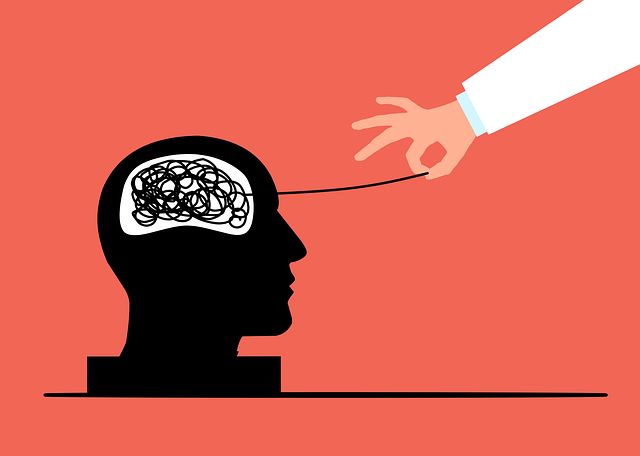Providing therapy for Elders Russian Speaking requires a nuanced approach considering cultural and linguistic factors. Tailored mental wellness coaching programs, incorporating evidence-based techniques and culturally sensitive communication, are crucial for improving emotional well-being in this community. By addressing unique emotional expression methods and offering accessible resources like podcasts and workshops, caregivers can empower elders to manage stress, challenge negative thought patterns, and cultivate present-moment awareness, ultimately enhancing their quality of life.
Emotion regulation is a vital aspect of mental health, especially as we age. For Russian-speaking elders, understanding and managing emotions can be complex due to cultural factors and language barriers. This article explores effective strategies to enhance emotional well-being in this demographic. We delve into the impact of uncontrolled emotions on aging populations and present practical therapy techniques tailored to their needs. Additionally, it offers valuable tips for caregivers on teaching emotion regulation skills at home, promoting a healthier and happier life for Russian-speaking elders.
- Understanding Emotion Regulation for Russian-Speaking Elders
- The Impact of Unmanaged Emotions in Aging Population
- Effective Therapy Techniques for Emotional Well-being
- Practical Tips for Teaching Emotion Regulation at Home
Understanding Emotion Regulation for Russian-Speaking Elders

Understanding emotion regulation is particularly important for Russian-speaking elders due to cultural and linguistic factors. In many Eastern European cultures, including Russia, emotions are often considered deeply personal and may be expressed more subtly than in Western societies. This calls for nuanced approaches when introducing emotion regulation techniques within these communities. Therapists and healthcare providers must be culturally competent, understanding the unique ways these elders connect with their feelings and communicate them.
Mental wellness coaching programs designed for Russian-speaking seniors should incorporate communication strategies that respect this cultural perspective. Training in cultural competency for healthcare providers is essential to ensure effective therapy for elders speaking Russian. By tailoring emotional support and teaching evidence-based regulation techniques suited to their cultural background, these programs can significantly enhance the mental health and overall well-being of Russian-speaking elderly individuals.
The Impact of Unmanaged Emotions in Aging Population

For the aging population, unmanaged emotions can have significant consequences on overall well-being. As people age, they often face various challenges such as health issues, financial concerns, and social isolation, which can lead to heightened stress levels and intense emotional reactions. If left unaddressed, these emotions can result in profound impacts on mental and physical health. The elderly might experience increased anxiety, depression, or even cognitive decline if they lack effective coping mechanisms.
Providing therapy for elders who speak Russian can offer a unique and tailored approach to emotion regulation. Specialized programs focusing on emotional well-being and stress management are beneficial for this demographic. Through these therapies, individuals can learn self-care routine development techniques that promote better mental health. By teaching them to recognize and manage their emotions, they gain valuable tools to navigate life’s challenges, improving their overall quality of life.
Effective Therapy Techniques for Emotional Well-being

Effective therapy techniques play a pivotal role in enhancing emotional well-being, particularly for Russian-speaking elders seeking support. Therapies tailored to this demographic often incorporate elements from cognitive-behavioural therapy (CBT), mindfulness practices, and cultural considerations. CBT helps individuals identify and challenge negative thought patterns, while mindfulness encourages present-moment awareness, both of which are valuable tools in managing emotions.
For Russian-speaking communities, the Mental Wellness Podcast Series Production can offer accessible resources, providing insights into various therapy techniques and emotional regulation strategies. Additionally, Stress Management Workshops Organization and Public Awareness Campaigns Development can further support emotional well-being by educating community members on available resources and fostering open conversations about mental health. These initiatives contribute to a holistic approach, ensuring that elders receive the necessary tools to navigate and improve their emotional landscapes.
Practical Tips for Teaching Emotion Regulation at Home

Teaching emotion regulation techniques to Russian-speaking elders at home can be a rewarding experience for both caregiver and care receiver. Start by creating a safe and comfortable environment where open conversations about emotions are encouraged. Use simple, relatable language to explain complex concepts, ensuring the content is accessible and engaging. Incorporate practical exercises like breathing techniques, progressive muscle relaxation, or guided visualizations tailored to their cultural background.
For instance, incorporate elements from traditional Russian folklore or music into calming activities. Public awareness campaigns can also play a vital role in promoting emotional intelligence and anxiety relief among this demographic. By sharing resources and stories, caregivers can help elders develop effective coping strategies, fostering a sense of community and empowerment.
Emotion regulation techniques are invaluable tools for improving the emotional well-being of Russian-speaking elders. By understanding the unique challenges faced by this demographic, we can better equip them to navigate the complexities of aging with resilience and grace. The article has explored evidence-based therapy techniques, highlighting their effectiveness in managing unmanaged emotions commonly experienced in older adults. Practical tips provided offer accessible ways to teach emotion regulation at home, fostering a supportive environment for folk to thrive. For those seeking specialized care, therapy for elders speaking Russian can be tailored to meet their needs, ensuring they receive the support necessary to lead fulfilling lives.














